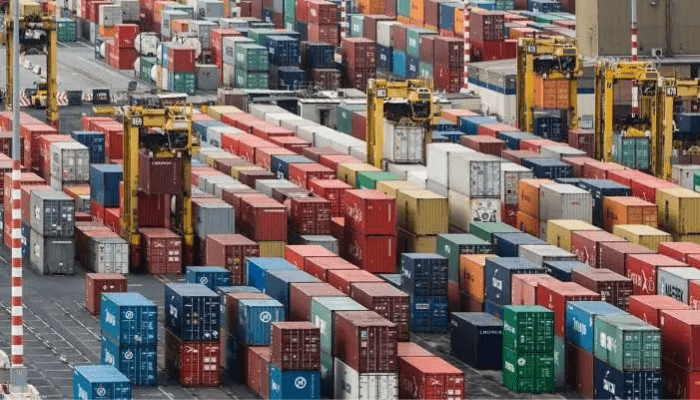Excessive import obligation, fixed upward adjustment of alternate charges for cargo clearing by Customs, greenback shortage and excessive alternate charge of naira in opposition to the greenback are the elements that affected the expansion of the port trade in 2023.
FX disaster, which escalated with the elimination of subsidies and the introduction of the Central Financial institution of Nigeria’s (CBN) floating naira coverage in June 2023, additionally worsened importers’ woes because the coverage brought on the naira to witness a free fall within the FX market and it crossed N1,200 within the parallel market.
The skyrocketing FX charges in each the CBN official window and the parallel markets additionally resulted within the steady adjustment of the alternate charge for cargo clearing on the port from N422.30/$ in the beginning of Nigeria President’s administration in June 2023 to the present N951.941/$.
In response to trade analysts, this growth negatively impacted the port enterprise as importers not solely required big naira to supply {dollars} to usher in items into the nation but in addition extra naira to pay tariffs and levies to the Nigeria Customs Service.
They mentioned the cruel working setting is now forcing producers to exit Nigeria to different neighbouring international locations whereas importers are already abandoning cargo at ports.
“The losses recorded within the maritime trade in 2023 aren’t quantifiable. A number of issues went fallacious. The FX charges of naira in opposition to the greenback and alternate charge for clearing imports imposed by the Nigeria Customs surged very excessive. All these led to a decline within the quantity of imports,” mentioned Tony Anakebe, a licensed Customs agent.
In response to him, importers are actually underneath strain as a result of they purchase {dollars} at a really excessive charge even when it is usually tough to safe financial institution loans to fund import enterprise.
He nonetheless mentioned the end-users pay the final word value as a result of the importer pushes the price again to the ultimate shoppers which is why costs are excessive in Nigeria right now.
Reviewing the port trade in 2023, Fortunate Amiwero, an trade stakeholder, described 2023 as a troublesome 12 months for the maritime sector as a result of elimination of subsidies and the floating alternate charge that affected imports and escalated costs of products.
He mentioned the surging inflation lowered the buying energy of importers and shoppers such that the quantity of products declined tremendously.
He added that many individuals are going by ache and companies are additionally closing store, including lack of jobs on the a part of the worker.
Obi Nwabunwanne, a Lagos-based importer, mentioned alternate charge volatility and shortage of {dollars} pressured many importers out of enterprise, leading to a lull in import actions.
Nwabunwanne additional mentioned that the rise in the price of clearing cargo as a result of upward overview of alternate charges made importers pay extra as import duties and levies.
“These FX points have been attributable to coverage inconsistency and alternate charge volatility has accomplished extra harm than good to importers. In consequence, the inflation and meals costs have continued to surge with out management as importers and producers proceed to regulate costs to cowl for the manufacturing value,” he mentioned.
Earlier than the tip of 2023, Customs adjusted the alternate charge for cargo clearing on the port trade thrice after the Service began the implementation of the floating international alternate charge regime by the Central Financial institution of Nigeria in July and the fourth because the coming into energy of the brand new authorities.
The Customs had on June 24, 2023, adjusted the alternate charge from N422.30/$ to N589/$ and on July 6, 2023, it was adjusted to N770.88/$, on November 14, 2023, it was additional adjusted to N783.174/$ and lastly, on December 7, it was adjusted to N951.941/$.


